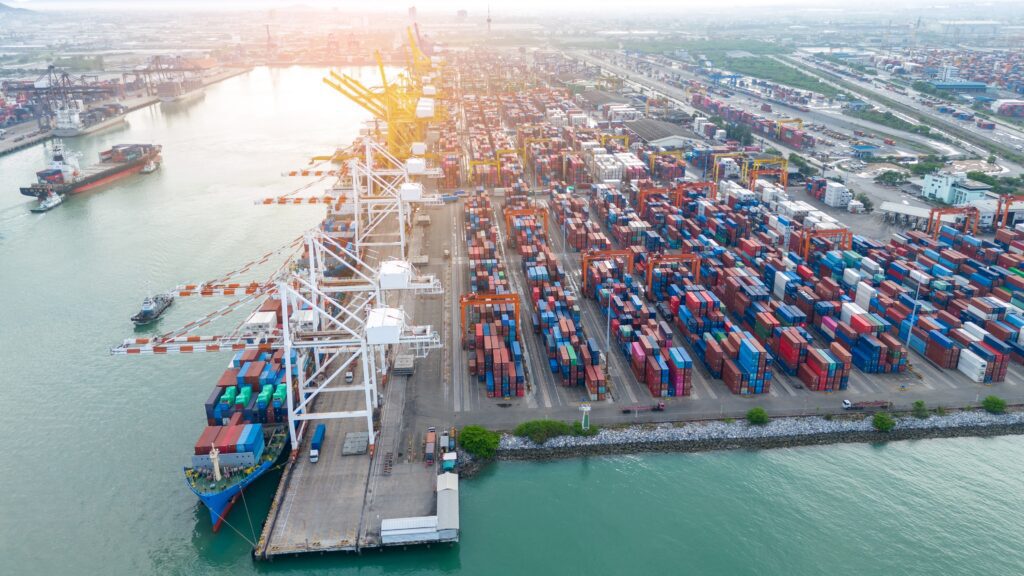What the Longshoreman Strike Means for Your Business

On Tuesday, October 1, 2024, the International Longshoremen's Association (ILA) voted to strike, effectively shutting down the busiest ports on the East and Gulf Coast.

The Longshoremen's Association, the largest maritime labor union in North America, has been trying to reach a new labor contract with the United States Maritime Alliance (USMX) before their previous contract expires on September 30, 2024. Along with general wage negotiations, the union had concerns about foreign interests. in docks and automated machines that threaten the safety of operations.
Negotiations stopped, and the strike began. This strike is the first East Coast naval strike since 1977. More than 47,000 workers have left their positions and are not willing to return until their demands are met, in fact they are pushing for a “stop” in all port operations.
How the Port Strike Will Affect Businesses
The longshoremen's strike has major implications for US trade. Incoming cargo ships must divert to an active port or remain idle until crews return. This will not only increase shipping costs, but also delay the arrival of any incoming shipments for US businesses.
A port strike has major economic consequences that could be similar to the supply chain nightmare we experienced during the pandemic, if not worse.
Here are the industries that will be most affected:
- Production: Manufacturers who rely on orders from overseas may have their operations permanently delayed unless they can establish new relationships with suppliers. If manufacturers can't order their next round of materials, their resources will grind to a halt, and they'll start bleeding money. It will cause major cuts, from electronics manufacturing to plastics and textiles, which could become the norm if there is no progress in union negotiations.
- Building: Similar to manufacturing, a lack of material will limit what an industry can achieve. Available items will be sold for a fee, while most companies will not have access at all. Whether construction companies pass these costs on to consumers or are unable to absorb the losses, construction activity will likely slow as long as the strike continues.
- Retail and eCommerce: When production runs into challenges, retailers and eCommerce businesses feel the pressure sooner rather than later. Inventory orders will be very challenging, if not impossible, depending on the industry. If they can't get their hands on the products, the industry could miss revenue goals significantly. Companies that did not purchase their holiday inventory early will be affected sooner than their busy counterparts.
- Food Service: Restaurants and food service providers may have incoming items of spoiled food before the crates are cut. This does not result in an immediate loss of revenue, but it can halt their operations as they await the next shipment.
- Transportation: An industry familiar with supply chain challenges, transport will struggle until the strike ends. The CEO of National Business Capital, Joseph Camberato, said in an interview with Fox News, “Many companies have over-utilized to deal with the needs that exist because of the pandemic. They did not reduce quickly enough when the demand changed, which has challenged the industry in the last 12-24 months. Supply chain disruptions are similar and job loss.”
Almost any product that consumers and businesses rely on can experience delays and cancellations. In a recent Fox News interview, the CEO of National Business Capital said, “On top of all this, [the strike is] erasing all the work the Fed has done to get inflation below 3%. All the products that end up under the Christmas tree will be very expensive. Both businesses and consumers are finally starting to see the light at the end of the tunnel, and this could turn everything upside down.”
“If this goes on for a few days, I think it's manageable. If it takes weeks, businesses and consumers will feel the impact immediately, definitely before the end of 2024,” added Camberato.
Watch our full interview with the CEO on Fox News above!
What Companies Can Do in Response
If the longshoremen's strike will affect your operations, we urge you to take immediate action. Here are some things to consider:
- Buy in bulk from available suppliers, if possible, to qualify for bulk order discounts.
- How will you market your products/services. Will you lose because of the shipping delay, or will you pass that cost on to the buyer?
- To avoid distractions. If you are going to lose a business, how can you supplement the lost income?
The sooner you ask yourself the tough questions, the better your company can respond accordingly.
National Business Capital is here to support businesses through this challenge and move forward to a brighter future. If you are looking to increase capital options to maintain your performance throughout the claim, an advisor on our team is ready to help.


